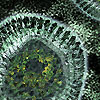There are many good sources for self-care information regarding practices for the pandemic.
Scientists from Geneva's University Hospital were asked by a Swiss bank to carry out a study amid worries that a flu pandemic could be prolonged due to the millions of bank notes incirculation.
Between 20 and 100 million banknotes change hands in Switzerland alone each day, it said.
The researchers left small samples of the flu virus on used banknotes which were then left at room temperature. Most of the virus survived only a few hours, but highly concentrated samples were viable for several days.
In the worst case, the virus mixed with human expectorant survived for two and a half weeks.
This type of virulence reinforces the observance of good self-care habits.
Prevention tips are especially essential, because each infected person is expected to transmit infection to two other people.
The following link will be a reminder of what you can do now, and what to do when the pandemic strikes. http://www.pandemicpractices.org/practices/resource.do?resource-id+234&-id=
Friday, January 18, 2008
Friday, January 4, 2008
New Vaccine Development
There has been a new step in the development of an effective vaccine against H5N1, the bird flu virus that's also dangerous to humans.
A preventative vaccine has been almost impossible to develop because of uncertainty over the final form of the virus when it mutates to a human pathogen.
According to virologists at the Erasmus Medical Center in Rotterdam, a vaccine currently being tested protects against different variants of the H5N1 virus, including new strains.
With the addition of a substance that stimulates the immune system, the vaccine response is improved.
Human trials (and trials in weasles, also susceptible to viruses) are currently underway.
A preventative vaccine has been almost impossible to develop because of uncertainty over the final form of the virus when it mutates to a human pathogen.
According to virologists at the Erasmus Medical Center in Rotterdam, a vaccine currently being tested protects against different variants of the H5N1 virus, including new strains.
With the addition of a substance that stimulates the immune system, the vaccine response is improved.
Human trials (and trials in weasles, also susceptible to viruses) are currently underway.
Friday, December 21, 2007
Why Does Flu Spread in Winter
New York researchers tell us that winter months foster the spread of flu virus because of the construct of the virus itself. The virus is more stable and remains airborne longer when the air is cold and dry. This describes our winter conditions exactly, and explains why these months see an increase in influenza type illness.
Influenza is more likely to be transmitted during winter on the way to work and school than it is in a warm room says the chairman of the microbiology department at Mount Sinai School of Medicine, Peter Palese.
This reinforces the reminders of infection prevention: wash your hands frequently, cough and sneeze into your sleeve (rather than into your hand), dispose of used tissues immediately, and if possible, avoid face-to-face contact with people suffering from influenza.
Influenza is more likely to be transmitted during winter on the way to work and school than it is in a warm room says the chairman of the microbiology department at Mount Sinai School of Medicine, Peter Palese.
This reinforces the reminders of infection prevention: wash your hands frequently, cough and sneeze into your sleeve (rather than into your hand), dispose of used tissues immediately, and if possible, avoid face-to-face contact with people suffering from influenza.
Tuesday, December 4, 2007
Washing Your Hands Of It
The United Nations recently reported that finding bird flu in German waterfowl is a sign the disease is being transmitted by seemingly healthy ducks and geese.
If birds do not show symptoms of the disease it is almost impossible to isolate or eradicate it. Because of this, they warn, Europe should prepare for more outbreaks. The source of bird flu in Britain remains unknown. It has now spread to 60 countries.
The BBC News informs us the UK is doubling its stockpile of antiviral medicines, but researchers believe simple low-cost physical measures could potentially provide an important defence against a pandemic.
"Wash your hands, and if it is a really bad epidemic, avoid contact with people and keep your distance... Soap and water is cheap and it could save your life or your baby's life."
If birds do not show symptoms of the disease it is almost impossible to isolate or eradicate it. Because of this, they warn, Europe should prepare for more outbreaks. The source of bird flu in Britain remains unknown. It has now spread to 60 countries.
The BBC News informs us the UK is doubling its stockpile of antiviral medicines, but researchers believe simple low-cost physical measures could potentially provide an important defence against a pandemic.
"Wash your hands, and if it is a really bad epidemic, avoid contact with people and keep your distance... Soap and water is cheap and it could save your life or your baby's life."
Subscribe to:
Posts (Atom)






